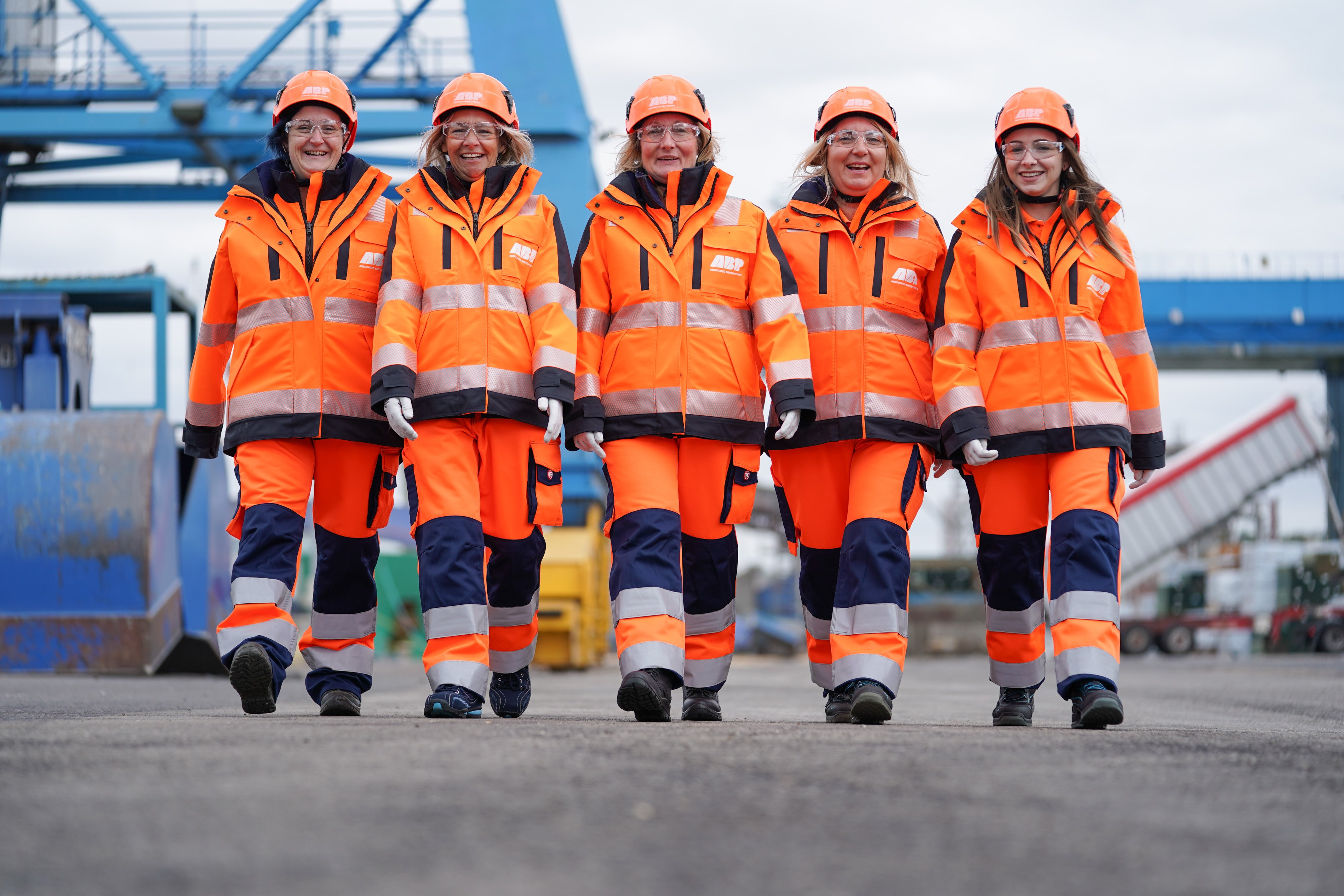Port of Ipswich colleagues putting women’s PPE through its paces. This photograph was taken in 2019, prior the introduction of Covid-19 social distancing measures.
ABP’s ports in Southampton and East Anglia have been recognised by the Diversity in Maritime Charter for their success in implementing initiatives to attract a more diverse workforce. Twenty volunteers from across the business helped create an action plan for further improvement, which the company is hoping to build on for its other locations.
In July 2019, ABP was the first UK port operator to provide personal protective equipment (PPE) designed especially for women. The move represented a great step in ABP’s efforts to further the role of women in maritime, whilst further improving safety standards and choice for its workforce. In line with its commitment to increase the number of female hires, in 2020, women represented 57% of ABP’s graduate intake and the company appointed four women into senior management roles, representing 33% of all senior leadership appointments.
Joining the Charter is a major undertaking as it holds organisations accountable for improving diversity and inclusion across the board. To become a Charter organisation, there is a requirement for businesses to share baseline data including the total proportion of women in their workforce and in middle and senior management and to set targets for either five or ten years. The targets form part of individual company action plans, in addition to a commitment to implement specific projects and initiatives. Through the life of the programme, Maritime UK regularly engages with charter organisations to assess progress and identify areas for new programmes and activity whilst providing a platform to share best practice and challenges with others.
The first step to becoming a Charter Company is to sign the Pledge. Over 120 companies have now been signed the statement of intent to demonstrate commitment to making progress on diversity.
Alison Rumsey, ABP Chief Human Resources Officer and Maritime Skills Commissioner, said:
“At ABP, we are committed to building a more inclusive, diverse and open working community, so that colleagues can be themselves at work every day. I am incredibly proud of the progress we’ve made so far and look forward to continuing to build on these strong foundations in future.”
Sue Terpilowski, Co-Chair of the Diversity in Maritime Taskforce, said:
“I am proud to celebrate ABP becoming the latest company to join the Charter family and shining a spotlight on two of their regions, Southampton and East Anglia. Women’s equality cannot wait, and we believe achieving a balanced workforce at all levels in the maritime sector will undoubtedly improve culture, behaviour, outcomes, profitability and productivity. We look forward to welcoming other companies into the programme”
Ben Murray, Director of Maritime UK, said:
“We are very pleased to see ABP take this important step on their journey to creating a more inclusive working environment. As a major employer in the sector, their progress will really help move the sector forward. We’re all thinking about how we can Build Back Better, and that must include a workforce that reflects the society in which we live – so that everyone can find a place in our sector, and so that our businesses reap the economic benefits that a diverse workforce is proven to unlock.”


